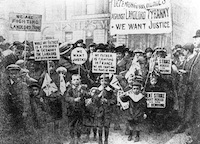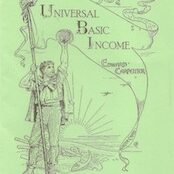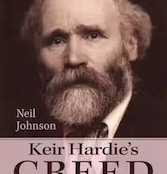Remember the Tories used to talk of a property-owning democracy? The 2011 census showed that the proportion of the population in mortgaged homes had dropped 15% in 10 years while the numbers renting privately had increased by 69% since 2001.
 Social housing accounted for only 18% of households in 2011, as opposed to 31% in 1981, and social landlords – at the behest of central government – are pushing up social rents to 80% of the ‘market’ level – unaffordable for many.
Social housing accounted for only 18% of households in 2011, as opposed to 31% in 1981, and social landlords – at the behest of central government – are pushing up social rents to 80% of the ‘market’ level – unaffordable for many.
Housing, home ownership and the right to an affordable home are likely to be major issues at this year’s general election, and they will be the focus of discussion at the next Wakefield Socialist History Group meeting this Saturday, 28 February.
Headed ‘Housing and the Class Struggle’, the meeting will be addressed by the group’s convenor Alan Stewart, who writes:
“At the start of the 20th century 90% of Britain’s population lived in private sector rented accommodation. The sector was subject to minimal regulation and with the coming of the First World War – and attendant pressures on housing –landlords began to hike up rents.
“This was at a time when many working class men were at the front fighting. Women saw it as a betrayal and began to organise tenant groups to resist the rises.
“In Glasgow in particular women got the support of the Independent Labour Party and were championed by socialists such as John Maclean. They also won backing from workers in the factories and shipyards. Their agitation forced the government to take action. Rent controls were introduced. So too was security of tenure which made it more difficult for landlords to evict tenants.
“Then in 1972 rent strikes broke out across Britain in response to the Heath Government’s notorious Housing Finance Act. That legislation aimed to force council rents up to market levels. Whilst Labour Councils – even those which originally resisted – eventually caved in one by one, Clay Cross stood firm to the end. Eleven councillors risked prison because of their refusal to implement the rises.
“And in Liverpool in the mid-80s the then socialist council – in the face of massive opposition from Whitehall – embarked on a huge house building programme. It built 5,000 new homes and froze council rents.
“So housing has been and still remains a focus for class struggle.”
The speakers are:
- Felicity Dowling (National Speaker with Left Unity; one of surcharged 47 Liverpool councillors; member of Cheshire NUT)
- Liz Kitching (campaigner with Hands off Our Homes, Defend our Council Housing and also National Campaign for Benefit Justice)
- Karen Fletcher (Secretary, Barnsley Against the Bedroom Tax)
- Kevin Feintuck (rank and file housing worker, Sheffield)
- Ian Brooke (housing worker and lead Unison steward)
- Cllr Hilary Mitchell (Wakefield Labour Councillor)
The meeting will be chaired by Kitty Rees.
What: Housing the Class Struggle
When: Saturday 28 February 2014, 1-4pm
Where: The Red Shed, Vicarage Street, Wakefield WF1
Admission is free and there will be a free light buffet.
More information from Alan Stewart: alanharperstewart@hotmail.co.uk



5 March 2015
I was not able to attend this event and I wonder if anyone who did attend could let us know if Housing Co-operatives were ever discussed? There appears to be sections of the left who seem to believe that the only ‘acceptable’ form of social housing is Council housing and somehow Housing Co-ops are a back door to privatisation. There does appear to be some confusion, at least in some sections of the Labour Party, between what is a Housing Association and what is a Housing Co-op. There is a huge difference between the bureaucratic paternalism of Housing Associations, which in some cases allow for some sort of tenant participation, and tenant control as found in Housing Co-ops.